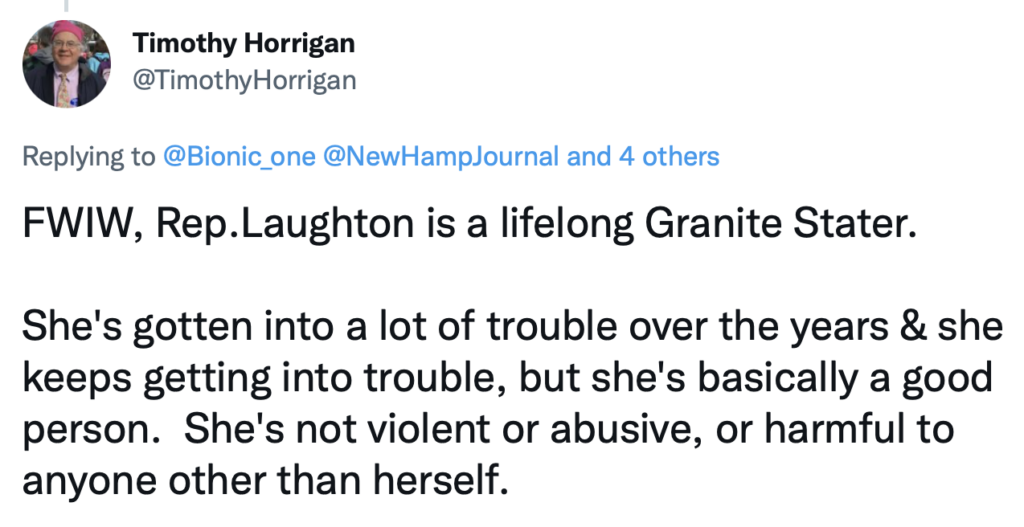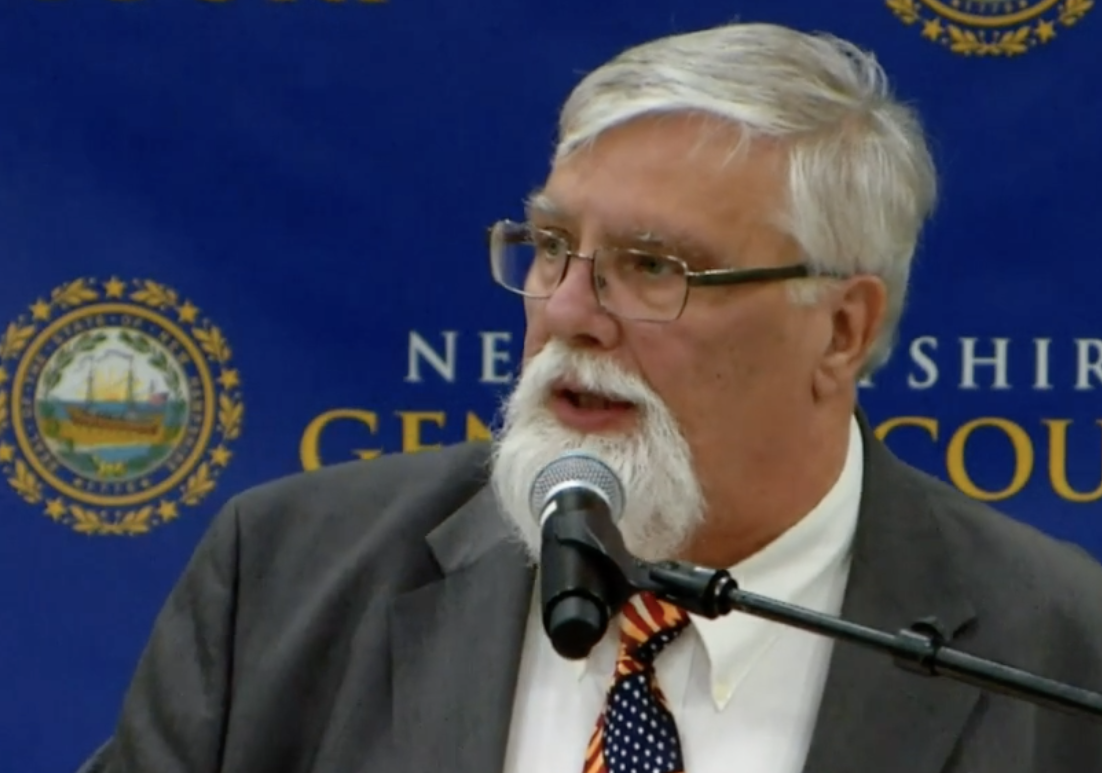Court Orders Defamation Case Against Buckley, NHDP to Move Forward

New Hampshire’s top Democrat played fast and loose with the facts, the New Hampshire Supreme Court has ruled, and now he is facing a defamation lawsuit for spreading falsehoods about a GOP candidate.
The State’s highest court decided that a defamation lawsuit filed by state Rep. Dan Hynes (R-Bedford) against the state Democratic Party and its controversial chairman Ray Buckley can move forward in Hillsborough Superior Court.
At issue is a 2018 campaign flier claiming Hynes, who was running for state Senate at the time, was a convicted extortionist who had been disbarred. But the flier got several key facts wrong. Now Buckley and his party are exposed to potential liability.
“Dan Hynes targeted woman-owned businesses for extortion. Hynes was charged by Republican Attorney General Kelly Ayotte, convicted by the State of New Hampshire for ‘theft by extortion’ and disbarred,” the flier stated.
But Hynes’s conviction in a 2009 extortion by theft case was annulled, which makes the flier fundamentally false, the court ruled.

Rep. Dan Hynes (R-Bedford)
“Under New Hampshire law, annulled convictions should be treated as if they never happened. Because a criminal arrest, conviction, or sentence potentially implicates one’s personal freedom, these are the most extreme steps the State can take against individuals. The effect of New Hampshire’s annulment statute is to, as a matter of law, render the arrest, conviction, or sentence void for the purposes of public discourse,” the ruling stated.
“The fact that the plaintiff was convicted undeniably exists, but as a matter of New Hampshire law, upon annulment, it is false and misleading to fail to state that the conviction was annulled.”
And while Hynes was disciplined for his actions with a suspension of his law license, he was never disbarred.
That was enough of a mistake to warrant a trial, the Supreme Court ruled Thursday, overriding a lower court that had dismissed Hynes’ case.
One common defamation defense is to claim the person making the charge wasn’t aware of the facts and made an innocent mistake. Unfortunately for Buckley, the Supreme Court noted that the hit piece mailer included the addresses of internet links to relevant court documents, including Hynes’ annulment. The hit piece also included an internet link to documents concerning Hynes’ law license suspension, meaning Buckley and the NHDP knew or should have known he was not disbarred.
“The inclusion of this citation in the mailer could lead a reasonable jury to find that the defendants were subjectively aware that the plaintiff had not been disbarred and, therefore, subjectively aware that the language in the mailer was untrue,” the ruling states.
Buckley and the state party declined to comment on the court’s ruling or answer questions about the false statements in the campaign flier.
According to court records, Hynes sent a “Cease and Desist/Demand Letter” to Claudia Lambert, Claudia’s Signature Salon owner in Concord, in 2009. Hynes claimed that because Lambert’s salon charged women more money for haircuts than men or children, she was engaging in gender discrimination.
Hynes’ letter demanded that she stop charging women more money and that she pay him $1,000. Lambert’s husband contacted the New Hampshire Attorney General’s Office, and during a sting operation, an investigator witnessed Hynes taking $500 to settle his claim of unfair trade practices. During that meeting, Hynes reportedly said he had sent other letters to other hair salons and was currently in negotiations with these businesses and their attorneys.
Hynes was convicted, ordered to pay restitution, and had his law license suspended for a year. The conviction was later annulled after completing all the terms of his sentence.













